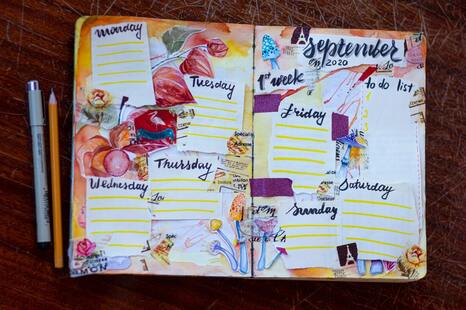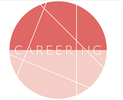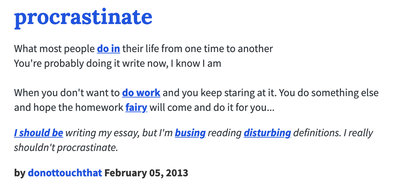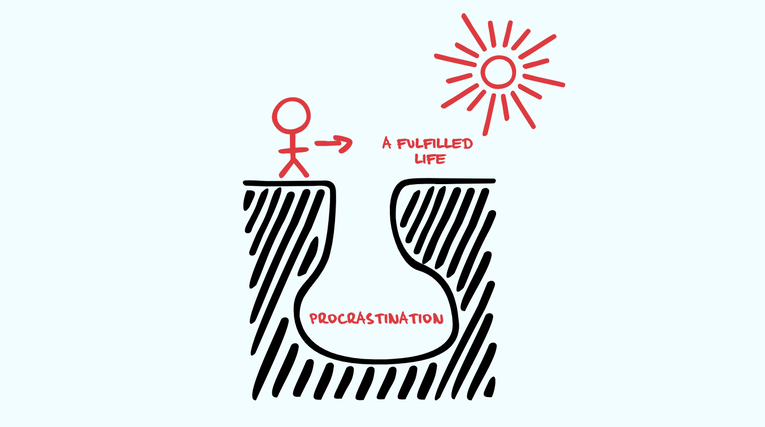Words, Ideas, StuffSome ideas and thoughts, captured with the view to help you.
|
|
Decided to do a throwback to the days of Uni assignments and compare and contrast some schools of thought on procrastination. Here we delve into the science of procrastination and the positive view of it. Weirdly landed in a pretty similar place when all is said and done, so here's a short overview of each, and a wrap up at the end. Enjoy! Our Brains on Procrastination Heading into the deep, dark world of scientific research on procrastination, there were some gems to be found. Eric Jaffe “experts define it as the voluntary delay of some important task that we intend to do, despite knowing that we’ll suffer as a result” Professor Tim Pychyl, from Carleton University, Ottawa, who has been studying procrastination for the past few decades, believes it is a problem with managing emotions rather than time. "This study provides physiological evidence of the problem procrastinators have with emotional control," he says. “In research settings, people who procrastinate have higher levels of stress and lower well-being.” Joseph Ferrari, a professor of psychology at DePaul University says that while we almost all procrastinate, only about 20% of us are chronic procrastinators, and for those people it’s not about time-management. He says. “As I tell people, to tell the chronic procrastinator to just do it would be like saying to a clinically depressed person, cheer up.” His work and much of the deep science crew, negate the views of the positive procrastination team below. In 1997 Dianne Tice and her colleagues developed a scale, model and researched the habits of tertiary students and concluded: “Procrastinators earned lower grades than other students and reported higher cumulative amounts of stress and illness. True procrastinators didn’t just finish their work later — the quality of it suffered, as did their own well-being.” There does seem to be a common thread in the science world on this, summed up by psychologist Timothy Pychyl “Emotional regulation, to me, is the real story around procrastination, because to the extent that I can deal with my emotions, I can stay on task” His work with Sirois blends the short term mood boost from procrastinating with the longer term damage it creates. They say that “procrastinators comfort themselves in the present with the false belief that they’ll be more emotionally equipped to handle a task in the future”. “The future self becomes the beast of burden for procrastination,” says Sirois. “We’re trying to regulate our current mood and thinking our future self will be in a better state. They’ll be better able to handle feelings of insecurity or frustration with the task. That somehow we’ll develop these miraculous coping skills to deal with these emotions that we just can’t deal with right now.” Laura Rabin is leading work on connecting our brain’s executive functioning with the emotional work done to date, and while some themes are appearing, there’s more to do. It seems the summary of this type of research is that there are few new areas of focus, which are less about grunt work, less focused on task design, and more about the mental and emotional states we’re in to help us get where we want to be. It does remind me of the marshmallow experiment where delayed gratification (the ability to wait to obtain something that one wants), was tested. So how do we get ourselves primed for the work, get the work done, get some feel good vibes AND achieve things? Million dollar question here with no clear answer. What we can do is firstly take responsibility for setting ourselves up for success and for owning our choices. Ultimately delaying is a choice, Starting is a choice. Choose what you want to do! 
Positive ProcrastinationPiers Steel, a psychologist at the University of Calgary says that we will use a bad task to avoid a really bad task so we can play them off against each other to get through them, although we still need some grunt to do the one we really don’t want to do. Makes sense right – take on the lesser of the two evils? John Perry calls this “Structured procrastination” and he says: “At the top of your to-do list, put a couple of daunting, if not impossible, tasks that are vaguely important-sounding (but really aren’t) and seem to have deadlines (but really don’t). Then, farther down the list, include some doable tasks that really matter.” Which sounds a lot like gaming yourself, or the equivalent of eat your vegetables so you can get dessert?  What if you’re not a ‘to do’ list kind of person? There’s some work from the Procrastination Research Group at Carleton University which is spearheaded by Timothy Pychyl. He writes on Psychology Today’s site about findings from his colleague, Shamarukh Chowdhury’s research on a small sample of a few hundred students. The data showed that people who are naturally conscientious (one of the big five personality traits, worth a Google to learn more on this too btw), and who normally use to do lists, they’re an effective tool for you. For those that lie more on the side of procrastinate than #GSD, it’s possible conscientiousness is also a little lower and you likely aren’t native list makers, so to get the gears moving, creating the list as the first new habit can be helpful in getting through the things you’re putting off. Interestingly too there is a gender difference in her research, with females creating to-do list more so than males, but Pychyl reminds us that “there is no gender difference in conscientiousness” so all of us can learn to game our day and get writing those lists if we want to try some tactics to beat down procrastination. Back to Perry though, and important in 2021 as we work during mixed mode times - his research suggest that through more flexible work we’re now procrastinating a lot – 25% of work time, and for students, 1/3 of the time. And apparently men are more likely to procrastinate than women, especially young men. So is this the case where the ‘good girl’ messaging is helping us gain an edge? If all things were equal, then maybe. Their data also shows that 95% of us do procrastinate. Makes me wonder that instead of structuring our tasks to game ourselves into doing the work, are we really giving ourselves enough creative or down time? I don’t know about you but the great ideas, the solutions I’ve been seeking, or the energy lift I need often come when I am baking lemon slice instead of financial modelling, or when I’m doing a 20 min Zumba class on Youtube. Those a-ha moments or flashes of brilliance rarely come when I force myself to be desk bound or belligerently pushing on and on and on. They come when I’m in flow, or when I’m allowing my brain to do it’s background computational stuff and finding solutions. So there’s an argument for downtime. There’s also a massive argument for why the traditional industrial era eight hour work day is crap, but that’s not the soapbox I’m climbing on right now. The takeaway here is that perhaps ensuring enough ‘play’ time each day, is actually helpful, knowing when to take a break and putting a time on it might be good, and switch to a low energy task or a creative task can help. It’s also about locking in the good stuff and doing the things that shift the dial for you, the urgent and important things. If that means creating tricky to do lists, giving yourself a weekly reward for ‘eating the frog first’ each day, or doing only five minute mind breaks every hour (code for social scrolling) helps you create a way to complete what’s needed in a way that doesn’t suck the life outta you, then let’s go! There’s a tonne of insight from the CA team that argue that procrastination isn’t about time management (although list making etc can help) but it’s more about emotional regulation which is detailed above. Basically, the formula is manage yourself to feel good and get cracking, as when you feel bad, you’re more likely to avoid the stuff that needs to be done and instead find ways to feel good. Right so that’s the over simplified version of it as I want to wrap this up in case you’re using reading this as a procrastination tactic! Summation of it is that when we feel good, we’re connected to our goals and future, we feel we know the next step or two and we get cracking, we’re onto a winner. If you’re interested in learning more about this, head into the web vortex and search for emotion-regulation strategies, it’s fun! One final point on procrastinating is that all these experts with the data, the tools, the tricks and the labels, still say the same basic thing for when you’re stuck in the loop …. “just get started”. Take the first step. To quote the great Chinese Philosopher, Lao Tzu “A journey of a thousand miles must begin with a single step”. This is the most well known part of his quote, but the whole paragraph is really good, and relevant for this topic: Do the difficult things while they are easy and do the great things while they are small. A journey of a thousand miles must begin with a single step. Top up the good vibes and then get steppin’! References:
https://www.psychologytoday.com/ca/blog/dont-delay/202002/do-do-lists-work https://www.nytimes.com/2013/01/15/science/positive-procrastination-not-an-oxymoron.html https://www.psychologytoday.com/ca/blog/dont-delay/202003/negative-emotions-today-predict-procrastination-tomorrow https://www.bbc.com/news/health-45295392 https://www.procrastination.ca/ https://www.sciencedaily.com/releases/2018/08/180822090455.htm https://www.psychologicalscience.org/observer/why-wait-the-science-behind-procrastination
0 Comments
Anyone else working through Aotearoa’s Level 4 Lockdown Round 2, The 2021 Edition, and struggling to find the motivation to do the things? Here’s where today’s creativity got funnelled – into researching procrastination, what it is, why we do it, and a lot more. The research started here on Urban Dictionary, which tickled the funny bone … It then lead into a few other amusing definitions on there, and then eventually took me to a website called procrastination.com, which helped get the focus back to what this researching was all about. Their ‘in ya face’ definition is the first thing you see … Procrastination definition: Trouble persuading yourself to do the things you should do or would like to do. When you procrastinate, instead of working on important, meaningful tasks, you find yourself performing trivial activities. Pro-crastinus = (lat.) belonging to tomorrow Procrastination = putting things off intentionally or habitually Their site is a goodie and really pitches procrastination as the baddie keeping us from living our best lives. Dramatic! But also insightful and it can be, if we’re allowing it to ride roughshod over how we move through each day. If you’re someone who’s interested in knowing more about procrastination or working on reducing this then go check out their site. For now, we’re focusing in on how to quickly get a read on your style of procrastination, and how to manage it so it’s not getting in the way of the good stuff, especially now as we could all do with more of good vibes!  Business Insider shares some intel from Aussie ladies Ali Schiller and Marissa Boisvert of Accountability Works, who say there are four types of procrastinator. Below is a wrap up of the four types and my interpretation of how to manage yourself if you identify with one of these types. They say that there are "four main types of avoidance archetypes, or procrastinators: the performer, the self-deprecator, the overbooker, and the novelty seeker".
“If you want to make an easy job seem mighty hard, just keep putting off doing it.”— Olin Miller I agree that generally we likely fall into these four categories. I also think there are just some days where our CBF meter is off the charts and we’re finding everything possible to do other than the things we have on the list. Dunno about you but some days working from home, my house is cleaner, shinier and better vaccumed than ever as I would rather do that (and I hate vacuuming!) than read a 200 page Board pack, or call that customer. Some days we’re lost in an insta-black hole looking at pics of the babies of the Kardashians (okay this was absolutely me yesterday morning!) as that’s so much more enjoyable than sitting upright dealing with an overloaded inbox. We’re chasing fun, feel good, enjoyment instead of the hard yakka tasks. This suggests there are a couple of things to consider:  Firstly – how are you REALLY? Some days we do just need a break, we don’t have the fuel to do the work. So we need to stop completely or keep it light. Lockdown has a weird way of affecting us all differently and each day can feel like a whole new range of emotions, so go easy on yourself. We need to tune into ourselves and do what we need to do. It’s okay to take a morning off or a day off. When did you last have a holiday? Are you struggling with work, study, life or family pressures? If you had a migraine or sprained wrist, you’d rest up and we need to do the same when we’re not feeling great emotionally or mentally too. The cost of not doing that is much bigger and creates long term burnout and damage.  Secondly – if you’re really okay, what’s got you stuck? Is it a case of overwhelm where you don’t know where to start, or the task is massive and overwhelming and you’re stuck, or you’re full of fear and frozen? For all of these, the best course of action is: 1.Brain dump all the worries. Get a new word doc, note or page and write them all down. Big, small and everything in between. 2.Play them out – do the “what if this happens” best case AND worst case. 3.Now get into the details – what needs to happen to get the thing done? List all the actions, sections, tasks, decisions. 4.Choose a task or action that feels interesting or manageable. 5.Do that. 6.High five yourself, have a mini dance party, send a hot pic to your partner, stretch, or whatever else feels good. 7.Repeat!  Thirdly – if you’re feeling okay, you know you just need to get with it, then, sorry fam, it’s about that super unsexy yet important word – discipline. JFDI. (Just &*^%ing do it). Crack on! Make it fun - if you need with scheduled breaks and rewards, but start and push on for a chunk of time. Maybe it’s a 45 min push and 5 mins of Tiktoks. 120 mins of work then a slow stroll in the sun. Whatever works for you. The first few minutes of discipline are hard, resisting the urge to move onto something more enjoyable or easier is hard, but that feeling at the end of the day, knowing you’ve done the doing on the right things, that’s so worth it. “Procrastination is like a credit card: it’s a lot fun until you get the bill.” Now, that thing you know you’re putting off? Give it your best for the next 30 mins.
J F D I ! Moving forward is easy – left, right, left, right, rinse and repeat. Movement, doing or busy-ness is easy. But moving forward in a meaningful way, in the direction that helps us create the future we want? Oooof, that’s hard.
It’s harder than ever with so many options and choices, we’re told we can have it all, and yet sometimes that’s the problem! The paradox of choice can keep us stuck. If you’re unsure what the ideal future looks like (and we all have a tonne of uncertainty right now), and you’re wanting a little more certainty, then using some of the good old tried and true tools can help. Here’s a couple to kick things off. Where to focus your energy and effort? Using the Wheel of Life can help decide where to focus your efforts in balancing your life https://thecoachspace.com/blog/use-the-wheel-of-life/ How to make decisions on your career, any of the big life stuff, or to shape plans that come from the insight gained from the Wheel of Life, De Bono’s 6 Thinking Hats is a goodie: https://www.mindtools.com/pages/article/newTED_07.htm It's a surreal time at the moment, with mixed messages around rest/taking care, and with carrying on with the 'new normal'. It's always best to listen to your own body and soul, and do what YOU need. If you're inspired to 'do', you might love this wisdom too. "There's a limit to how many steps you'll be able to take today. Make sure they're all in the right direction." - Jeff Sheehan One step, in the right direction, is more than enough especially in these crazy times. Kia manawanui. |
Categories
All
AuthorMelissa Davies Archives
January 2024
|







 RSS Feed
RSS Feed